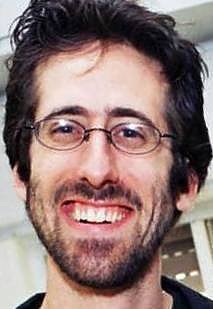This week, we are pleased to welcome guest writer, Dvar Tzedek alumnus Rabbi James Jacobson-Maisels.
In Parshat Bo, when describing the final plague about to be wrought on the Egyptians, God declares: “On all the gods of Egypt I will execute judgment.”[1] The Midrash explains that God is referring to the Pesach sacrifice, in which the Israelites slaughtered a lamb (one of the Egyptians’ gods) to demonstrate that they recognized the worthlessness and illusory nature of the pagan idols. The Midrash says: “Israel will not depart from [Egypt] until they slaughter the gods of Egypt before their eyes, that I may make known to them that their gods are nothing.”[2] The physical leaving of Egypt—the short-term solution to slavery—was not enough. The Israelites had to abandon the Egyptian belief systems, their gods, in order to reach true and lasting liberation.
Challenging the core beliefs and assumptions—the “idols”—of systems of oppression is what makes liberation from injustice possible today as well. When working for sustainable solutions in the developing world, we must not merely remedy the facts on the ground, but deeply transform the systems, ideologies and values that perpetuate them.
Today, one of the most egregious “idols” is our own consumption. This worship expresses itself in a few remarkable statistics. Americans are disproportionate over-consumers: We constitute five percent of the world’s population, yet we consume 30 percent of its resources.[3] We also create tremendous waste through our constant desire for “new and improved”: Of total material that flows through the systems of production, only one percent is still in product or use six months after its sale in North America.[4] Indeed, watching TV and shopping are Americans’ two main leisure activities, reinforcing a national identity tied to purchasing and ownership.[5]
Retailing analyst Victor Lebow expresses the centrality and devotional nature of consumption in American culture:
Our enormously productive economy . . . demands that we make consumption our way of life, that we convert the buying and use of goods into rituals, that we seek our spiritual satisfaction, our ego satisfaction, in consumption . . . we need things consumed, burned up, replaced and discarded at an ever-accelerating rate.[6]
Even those of us who see ourselves as somewhat immune to this culture worship at its altar: buying new clothes as our old, still wearable, ones go out of style; abandoning old phones or computers in favor of the newer, more exciting models; and not giving away nearly as much of our resources as we actually could. I know this to be true of myself, and so my challenge, our challenge, is to attempt to more fundamentally question our assumptions of ownership that underlie the idols worshipped at the cathedrals of capitalism (the mall, the factory, the ad agency). We may feel that our consumption choices impact us alone, but in fact, the poverty of the developing world fundamentally rests on our own buying habits and the global systems of production that support them. Many of the cheap consumer goods that we purchase are only made possible by the abuse of humans and natural resources in the developing world. Cheap labor, unsafe working conditions and the expropriation of natural resources are linchpins of the systems that produce the goods we consume.[7]
Our religion of consumerism rests on a theology of ownership that sees what we earn and acquire as ours to be disposed of as we wish, rather than as conditional gifts on loan from God to be used with wisdom and compassion.[8] It assumes, as Egyptian culture did, that everything can be owned and should be owned, including human lives, whether in the enslavement of the Israelites or the exploitation of the poor in developing countries in order to produce cheap goods to meet our demand.[9]
In order to liberate ourselves from the false and oppressive idol of consumerism and the abuses it causes, we, like the Israelites, must strive for the liberation embodied by the Promised Land: one in which ownership and exploitation are fundamentally challenged, for no land or human can ultimately be owned by any power other than God.[10] We must have the courage and commitment to slay the idols to which we pay homage and so move from the slavery, idolatry and pain of consumption to the liberation, generosity and joy of the Divine.
[1] Exodus 12:12.
[2] Exodus Rabbah 16:3. The “them” of the midrash is ambiguous as to whether it refers to the Egyptians or the Israelites. I take “them” here to refer to the Israelites.
[3] Leonard, Annie. Story of Stuff, Referenced and Annotated Script. p. 3. Citing John L Seitz: Global Issues: An Introduction, (2001). Story of Stuff is available at http://www.storyofstuff.com/pdfs/annie_leonard_footnoted_script.pdf.
[4] Ibid., p. 9. Citing Paul Hawken, Natural Capitalism, (1999) p. 81.
[5] Ibid., p. 12. Citing “American Time Use Survey – 2006” by the Bureau of Labor Statistics (BLS) of the U.S. Department of Labor, June 28, 2007, http://www.bls.gov/tus/ and Juliet Schor, The Overspent American (1999).
[6] Ibid., p. 10. Citing Victor Lebow, Journal of Retailing, quoted in Durning, How Much is Enough? (1992).
[7] Ibid., p. 5. “’The global race to the bottom’ affects both developing and developed economies as transnational corporations roam the world looking for the lowest wages, the most vulnerable workforces, and the least regulation of environmental and occupational health,” excerpted from Garrett D. Brown, “The Global Threats to Workers’ Health and Safety on the Job,” Social Justice Vol. 29, No. 3, September 2002.
[8] The notion of humans having no true ownership of anything is expressed in Avot 3:7 and Derekh Eretz Zuta 2:1.
[9] The Egyptian belief that humans could be owned is also expressed in the enslavement of the Egyptians by their own rules, Genesis 47:19-27.
[10] Leviticus 25:23, 42.

